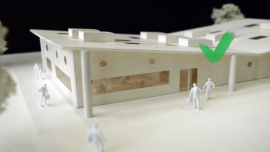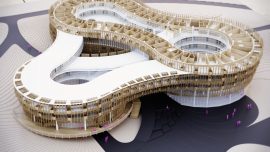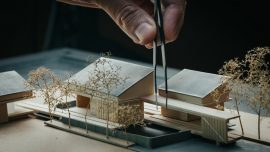
Architectural models – definition, types and objectives
2023年 4月 11日0
Architectural models are physical or digital representations of a building, structure, or object, created to aid in the design, visualization, and construction of a project. These models can be created at different scales, using a variety of materials and techniques.
Types of Architectural Models:
- Conceptual Models: used to explore and communicate design concepts in the early stages of a project, using simple materials such as foam, cardboard or paper.
- Presentation Models: created to showcase a project to stakeholders, clients, and investors, using more refined materials such as wood, plastic, or acrylic.
- Study Models: used to study a specific aspect of a project in more detail, such as a building’s facade or interior spaces.
- Working Models: created to test and refine construction techniques, materials, and structural systems.
- Digital Models: created using computer-aided design (CAD) software, these models provide a highly detailed and accurate representation of a project that can be easily modified and shared.
Objectives of Architectural Models:
- Visualization: To create a tangible representation of a design concept that can be visualized from different perspectives and angles.
- Communication: To facilitate communication between project stakeholders and participants, by providing a physical or digital representation of a design that can be easily understood and discussed.
- Testing and Refinement: To test and refine design concepts, materials, and construction techniques to identify and solve potential issues or conflicts.
- Marketing and Promotion: To showcase a project to potential clients, investors, or the public, by creating a visually appealing and detailed model that captures the project’s essence.
Overall, architectural models play an essential role in the design and construction process, providing a tangible and visual representation of a project that helps stakeholders understand and make informed decisions.




0 Kommentare
Einen Kommentar schreiben